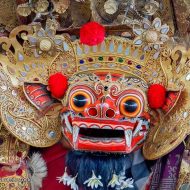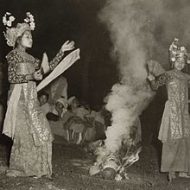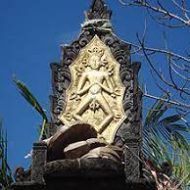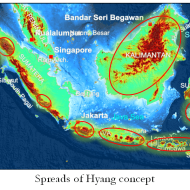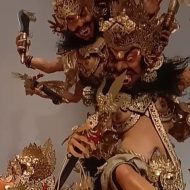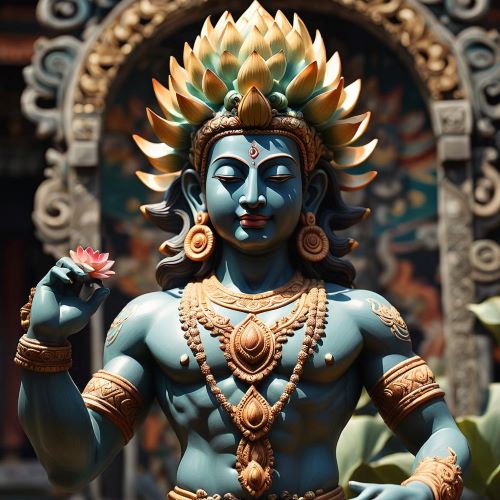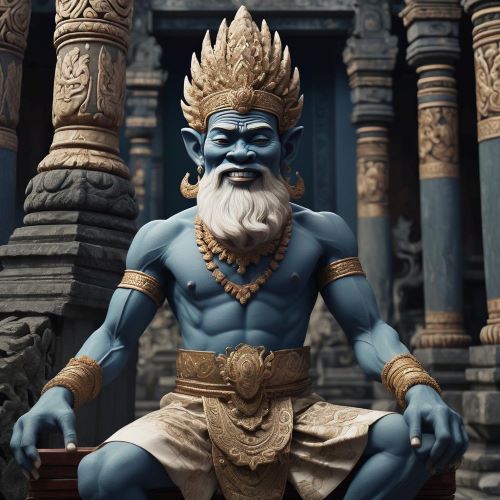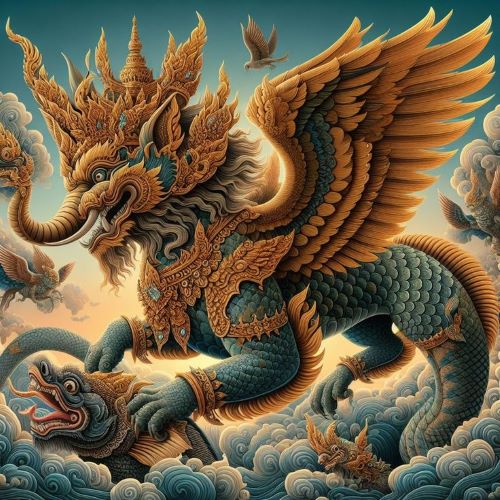Hyang : The Unseen Spirit
Listen
At a glance
| Description | |
|---|---|
| Origin | Indonesian Mythology |
| Classification | Gods |
| Family Members | N/A |
| Region | Indonesia |
| Associated With | Invisibility, Ancestors |
Hyang
Introduction
The Hyang, which is represented in both Balinese and Java mythology as the Supreme Being, is considered to be either divine or ancestral. It can be regarded as a symbol of the Supreme Being in folk religions such as those of the Sunda Wiwitan, Kejawen, Cigugur Sundanism, and Kapitayan. In addition, other religions such as those of the Balinism and Javanism have also regarded this spiritual entity as a part of their own traditions.
The place where Hyang is located is called the Kahyangan, which literally means “the abode of Hyang,” or “part of Hyang,” according to Old Javanese tradition. According to old Javanese manuscripts, Hyang refers to the concept of omnipotence and also means “the powerful.” This term is commonly used in the Sunda Wiwitan spirituality to refer to the powerful.
Balinism, refers to the Hyang as a personal form that has supernatural powers. It is believed that his arrival in a person’s life provides them with great happiness and satisfaction. In Indonesia, people commonly refer to the term Hyang as referring to the creator, beauty, or all existence.
Physical Traits
The Hyang is considered to be an invincible spirit without any particular form or shape.
Other Names
The Hyang’s origins can be traced back to the origins of various words and phrases such as rahyang, sakyang, and dayang. In modern times, the term hyang is often used to refer to gods and certain haunted places. The word tiyang, which literally means “person,” is believed to have come from the words hyang and ti.
The word priangan, which literally means “the abode of the noble Hyangs,” is often used to refer to the place where the noble family lives. Dieng Plateau in Central Java is also derived from the combined words di-hyang and dah-hyang. Gunung Padang in West Java is from the word dah-hyang, which literally means “the sacred place of Hyangs.” The word sembahyang, which literally means “worshipping,” is a derivative of the Islamic shalat ritual.
Powers and Abilities
According to Balinese beliefs, the Hyang only move in straight lines. In traditional buildings, a wall known as an aling-aling is placed inside the doorway to keep the spirits away. Similar walls can also be seen at the entrance of Javanese cemeteries. Beliefs in similar practices can be found in British corpse roads and other spiritual traditions.
Modern Day Influence
Before the advent of Islam, Hinduism, and Buddhism in Indonesia, the natives of the archipelago believed that powerful spiritual entities can be both malevolent and benevolent. They believed that their deceased ancestors’ souls can still gain spiritual power and influence their offspring’s worldly affairs. The reverence and veneration that native Indonesian communities have for their ancestors is an integral part of their traditional beliefs. This is evidenced by the various ethnic groups that practice this practice, such as the Dayak, Toraja, and Nias.
In ancient societies such as Java and Bali, the Hyang is regarded as an unseen spiritual entity that resides in high places. These areas are considered sacred because they are the resting places for the souls of the ancestors. The Hyang is believed to inhabit various mountains and volcanoes. In ancient Indonesian inscriptions, the Hyang has been referred to as the name of a deity or sanctuary that is commonly visited by members of various communities.
Related Images
Frequently Asked Questions
What is the meaning of Hyang?
The Hyang is a unseen spirit related to ancestors in Indonesian mythology.
Where is Hyang worshipped?
Hyang is worshipped in the Indonesian islands of Java, Sumatra and Bali.
Is the Hyang a spirit of your ancestors?
The Hyang is considered to be the spirits of ancestors who have passed away and have come to help out the living.
What is unique about the Hyang?
The Hyang can only move in straight lines and walls are usually put in place to prevent them from entering some homes or temples.

